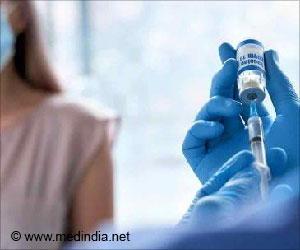showed that around 10 percent of people with severe Covid-19 had autoantibodies that attack and block type interferons — protein molecules in the blood that have a critical role in fighting off viral infections
‘Individuals with genetic mutations that disrupt the activity of type 1 interferons are at higher risk of life-threatening disease.’
The team at the Rockefeller University in New York City, first studied 3,595 patients from 38 countries with critical Covid-19, meaning that the individuals were ill enough to be admitted to an intensive-care unit.
Overall, 13.6 percent of these patients possessed autoantibodies, with the proportion ranging from 9.6 percent of those below the age of 40, up to 21 percent of those over 80. Autoantibodies were also present in 18 percent of people who had died of the disease.
The researchers suspected that these devious antibodies were a cause, rather than a consequence, of critical Covid.
The team also found that individuals with genetic mutations that disrupt the activity of type 1 interferons are at higher risk of life-threatening disease.
Further, the researchers extended the probe for autoantibodies in blood samples taken from almost 35,000 healthy people before the pandemic.
They found that 0.18 percent of those between 18 and 69 had existing autoantibodies against type 1 interferon, and that this proportion increased with age: autoantibodies were present in around 1.1 percent of 70- to 79-year-olds, and 3.4 percent of those over the age of 80.
“There is a massive increase in prevalence” with age, said immunologist Jean-Laurent Casanova at the varsity.
“This largely explains the high risk of severe Covid in people in the elderly population,” he added.
Source: IANS



